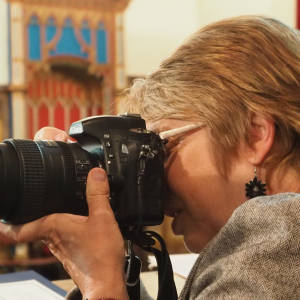In a Pickle
This is a lovely old farm house in our village- it's not been a working farm for a long time. Currently, it is in rather a 'pickle' (see below) as it's adjacent barns are undergoing renovation into another of these fashionable dwellings. Maybe once that's completed the owner of the thatched farmhouse will be able to do up their own dwelling to get it out of its 'pickle'.
Shakespeare Challenge: In a pickle
Meaning
In a quandary or some other difficult position.
Origin
The earliest pickles were spicy sauces made to accompany meat dishes. Later, in the 16th century, the name pickle was also given to a mixture of spiced, salted vinegar that was used as a preservative. The word comes from the Dutch or Low German pekel, with the meaning of 'something piquant'. Later still, in the 17th century, the vegetables that were preserved, for example cucumbers and gherkins, also came to be called pickles.
The 'in trouble' meaning of 'in a pickle' was an allusion to being as disoriented and mixed up as the stewed vegetables that made up pickles.
Shakespeare was one of the first to use in a pickle, in The Tempest, 1610:
ALONSO:
And Trinculo is reeling ripe: where should they
Find this grand liquor that hath gilded 'em?
How camest thou in this pickle?
TRINCULO:
I have been in such a pickle since I
saw you last that, I fear me, will never out of
my bones: I shall not fear fly-blowing.
A return to the more literal interpretation of the phrase came about in the late 1700s. The Duke of Rutland had toured Britain and was present at the disinterment of the 350 year-old body of Thomas Beaufort, which he claimed to have been pickled and 'as perfect as when living. …….. The corpse was done up in a pickle, and the face wrapped up in a sear cloth.’
Admiral Horatio Nelson was the most celebrated personage ever to have been literally in a pickle although some pedants might argue that, being preserved in brandy, he found himself in more of a liquor than a pickle.
Other early examples also seem strange and unclear, but the first solid use of “in a pickle” in the sense we know it today comes from the diary of Samuel Pepys on Wednesday, the 26th of September, in 1660, when he notes that he was: ‘At home with the workmen all the afternoon, our house being in a most sad pickle.’ He can’t have meant that his house was “preserved” or “drunk” so he seems to mean ‘in a bad state,’ requiring fixing up.

Comments
Sign in or get an account to comment.


